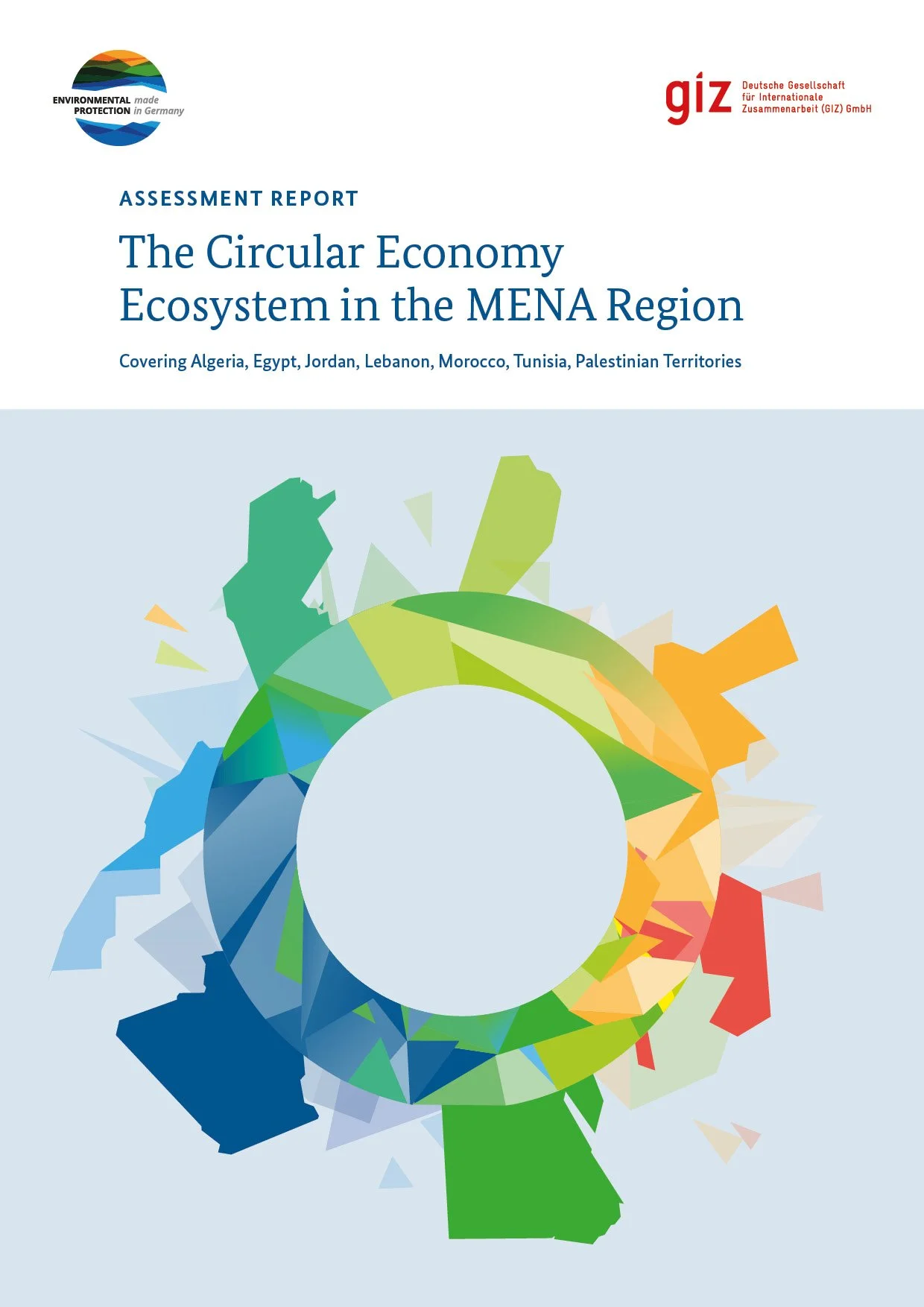Assessment Report: The Circular Economy Ecosystem in the MENA Region
Developed By:
Beyond Group
Kompetus
In Partnership With:
GIZ
On Behalf Of:
The Federal Ministry For The Environment, Nature Conservation, Nuclear Safety, and Consumer Protection - The Federal Republic Of Germany
2023
Assessment REPORT:
The Circular Economy Ecosystem in the MENA Region
Global economic development trends and the increasing concerns around their derived consequences exacerbating the impacts of climate change require major transformations in the way we do business. Circular Economy (CE) is considered an innovative way of adapting business activities and thus enabling the mitigation of the global economy’s impact on the environment and society. This assessment gives an overview on the current CE ecosystem and legal frameworks in seven countries in the MENA region (Algeria, Egypt, Jordan, Morocco, Tunisia, Lebanon, West Bank & Gaza), and provides recommendations for the creation of specific and well targeted programs in the region to help accelerate a circular growth. The adoption of CE principles in the target region can help promote more sustainable production and consumption patterns, reduce waste and pollution, conserve natural resources and create economic opportunities. Through the implementation of circular practices, countries in the MENA can not only reduce their environmental impact but also improve their economic and social well-being.
The context through which CE is understood and implemented in the MENA is far from limited to that of the EU definition and application. In the EU, CE frameworks prioritize waste reduction activities following the waste hierarchy principles. Meanwhile, in the MENA, CE related activities are primarily focused on waste management with the main activities concentrated in waste collection, waste disposal in landfills/dumping and sorting of waste. Considering the underlying issues faced by many of the countries in this study including economic crisis, political instability, corruption and heavily felt impacts of climate change with water scarcity being at the forefront, the three CE priority areas (waste management, renewable energy, water resource management) make sense as countries in the region are undergoing an explorative phase regarding CE. The assessment also includes findings regarding the CE ecosystem actors in the MENA with respect to government, access to finance, research, human capital, and business support.
The recommendations suggested in this assessment were formulated taking into consideration the distinct characteristics of the region and its constraints, such as the bottlenecks in implementing and enforcing solutions by local governments. The provision of recommendations is broken down per ecosystem aspect.

